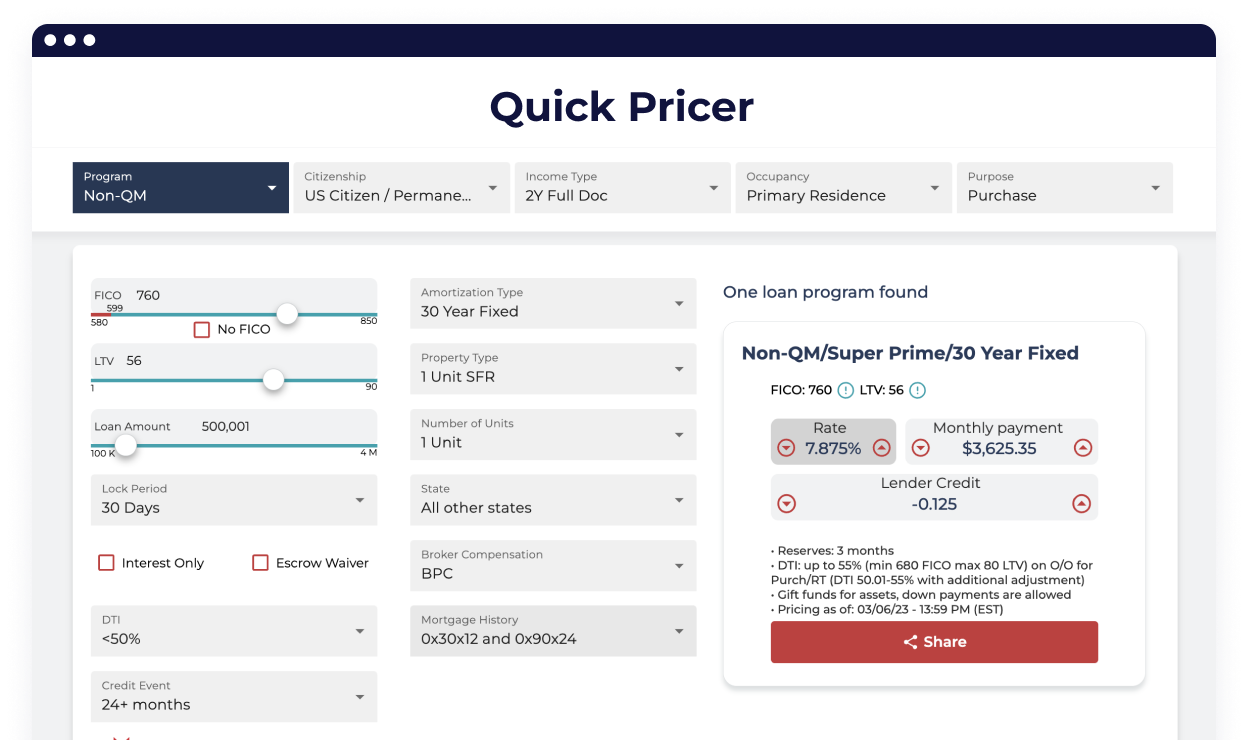FHA Standard loan is government-backed mortgage designed to help low- to moderate-income borrowers achieve homeownership. With a less stringent credit score and down payment requirements than traditional loans, FHA Standard Loan is ideal for first-time homebuyers.
Program features
Struggling with a loan scenario? Push the button and get a solution in 30 minutes!
Write to us, we will contact you within 30 minutes.

24 hours
24 hours
24 hours
The Federal Housing Administration, or FHA for short, is a federal agency of the United States Government established in 1934 to stabilize the U.S. mortgage market, improve housing conditions and standards, and provide an adequate home financing system.
It accomplishes this by providing mortgage insurance on loans made through its approved lenders and setting standards for underwriting and construction.
The FHA provides mortgage insurance to their approved lenders so that if a borrower defaults on their loan, the lender is reimbursed. The FHA does not directly offer loans.
Borrowers will have to pay a one-time upfront mortgage insurance premium (MIP) that is rolled into the loan and an annual MIP that is divided by twelve and included in their monthly payments.
The premiums go into a fund that repays lenders if borrowers default. Mortgage insurance is required for the full length of FHA loans.
FHA loan is the best for borrowers who are looking for a minimal down payment and who may have trouble getting approved elsewhere. Further, it will be important that the house they want to buy, falls within the mortgage limits.
Basic qualification requirements for an FHA loan. Applicants must:
Additionally, the home must meet the “Property Acceptability Criteria,” and the loan must be under the FHA maximum limit for their area
Many factors can influence the closing time of an FHA loan. However, according to Ellie Mae, FHA loan closing times average around 50 days.
All FHA loans require borrowers to pay an upfront and annual mortgage insurance premium regardless of the amount of their down payment. The annual premium continues for the entire length of the loan.
Upfront mortgage insurance premium (UFMIP)
The UFMIP is paid at the time that the loan closes and is equal to 1.75% of the base loan amount. Note that it must be entirely financed into the loan or entirely paid in cash. The proceeds are placed into an escrow account set up by the U.S. Treasury Department to protect the government if the borrowers end up defaulting on their loans.
Annual mortgage insurance premium (MIP)
MIP is due annually but can be paid on a monthly basis. Proceeds go to the FHA to cover the loss for the lender if the client defaults.
Mortgage insurance is required on an FHA loan to protect the government and the lender against losses. FHA loans enable higher accessibility to home ownership by lowering credit and financial requirements. As a result, lenders face a higher risk. Mortgage insurance helps to mitigate that risk.
Yes, they can. HUD and the FHA allow borrowers to use gifts and assistance programs to get the funds needed for their down payment. However, the gift must be from an eligible person who does not have a financial interest in the transaction (i.e., family, a friend, employer, etc.). The seller, builder, or real estate agent would not be an eligible gift giver. Further, the gift must be given without any expectation of repayment.
Yes, just like any mortgage, an FHA loan can be refinanced. Further, the FHA offers a streamlined program that makes refinancing quite simple.
Both fixed and adjustable interest rates are available on FHA loans. The average rates in the market will depend on current economic activity, and the rate offered will further depend on the borrower’s credit and financial profile.
Lenders will evaluate the level of risk borrowers present and will offer the best rates to those presenting the least amount of risk (i.e., high income, good credit, cash reserves, etc.).
The maximum loan amount for an FHA loan varies by location because it is determined by the county loan limits. To find the maximum loan amount for an FHA loan is specific area, you can visit the official website of the U.S. Department of Housing and Urban Development (HUD) and use the FHA Mortgage Limits Lookup tool (https://entp.hud.gov/idapp/html/hicostlook.cfm), filter by a desired location and get the FHA mortgage limits.
* FHA loan amounts are determined by the county loan limits, and therefore, the limit is not always $524,225. For the most accurate and up-to-date information regarding FHA loan limits in a specific county, please refer to the FHA Mortgage Limits Lookup tool provided by HUD at this link https://entp.hud.gov/idapp/html/hicostlook.cfm